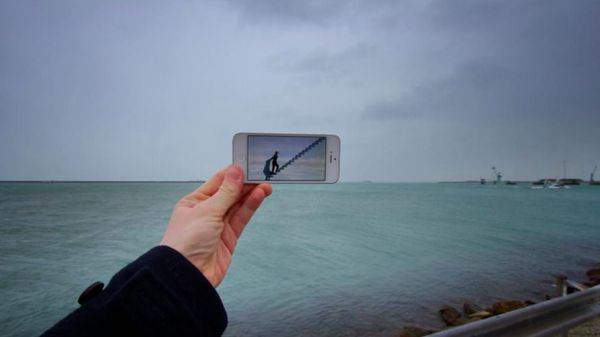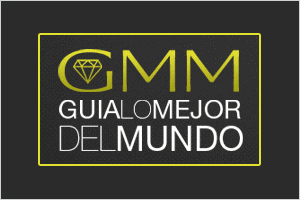El consejero delegado de una de las compañías más grandes del mundo ha abierto la veda al rechazar su colaboración con el FBI. Apple se niega a modificar el sistema operativo de sus dispositivos para que las autoridades puedan acceder a los datos del iPhone 5C, propiedad del autor del tiroteo de San Bernardino en el que murieron 14 personas.
La decisión ha sido aplaudida por otros gigantes del sector como Google, ya que, de lo que en realidad estamos hablando, parafraseando al propio CEO del buscador, es de un precedente "muy peligroso en cuanto a control gubernamental".
Cabe recordar que, a pesar de la sonada negativa a través de una carta escrita por el propio Cook, la compañía de la manzana ya ha colaborado en más de 70 casos con las autoridades pertinentes en las que ha facilitado datos para obtener acceso a contenidos de sus móviles y tabletas con el objetivo de resolver delitos.
En esta ocasión, Apple ha tenido que rechazar la petición de cambiar su sistema operativo para que el mismísimo FBI pueda acceder a cualquier dispositivo de la firma sin necesidad de pedírselo con anterioridad o con ayuda de una orden judicial.
Ahora que la saga Millenium vuelve a estar en boca de todos, la palabra backdoor, o "puerta de atrás", se ha vuelto a poner de moda con esta polémica decisión. Me refiero a esos atajos de los programas informáticos con los que se puede acceder a los datos y que los hackers utilizan para hacerse con ellos. El encriptado que usan estas compañías para sus dispositivos añaden una protección extra a los contenidos de los usuarios, con el fin de que no se vulnere su intimidad.
En este caso en concreto, lo que le habría pedido la Oficina Federal de Investigación (FBI por sus siglas en inglés) es precisamente el uso de una pasarela con la que acceder a estos y sortear el contenido encriptado con el que cuentan los últimos dispositivos de Apple, así como los de Google, que también se ha sumado a la batalla en apoyo a Tim Cook. Ha sido Sundar Pichai, director ejecutivo (CEO) del buscador, el que ha advertido sobre el enorme peligro de dejar una puerta abierta en el cifrado del iPhone, ya que se marcaría un precedente en cuanto a control gubernamental.

¿Tiene Apple doble moral?
El hecho de que la compañía haya colaborado en otras ocasiones con las autoridades, casi siempre en delitos de robo, no hace sino aumentar la incertidumbre ante la negativa de la marca. Expertos en terrorismo han alertado a las empresas de tecnología del uso delictivo de dispositivos y aplicaciones, pues en los últimos meses se ha revelado que tanto el ISIS como otros grupos terroristas se aprovechan de este tipo de avances, como la encriptación de mensajes, para llevar a cabo sus actividades.
Las autoridades se han encontrado con un paradigma difícil de resolver, puesto que cada vez se les hace más complicado interceptar comunicaciones de este tipo de grupos sin que se ponga en duda la vulnerabilidad de nuestra vida personal.
La petición del FBI ya no apunta hacia esto, pues piden además que Apple les ayude a sortear un proceso en el que en más de una ocasión se les ha esfumado la información que ya tenían en sus manos, y es que ni teniendo el propio dispositivo físico del autor del delito, se puede acceder al mismo sin la clave personal del usuario. De hecho, los intentos fallidos reiterados de la contraseña pueden llevar a un borrado automático del contenido.
Ni la propia compañía tiene acceso a la clave del teléfono en cuestión, ya que se almacena en el dispositivo sin que Apple tenga acceso a la misma. Por tanto, lo que tendría que hacer Tim Cook es modificar su preciado y popular sistema operativo para que las autoridades puedan acceder a la información personal saltándose la vía legal.
El Movimiento de Reforma de Vigilancia Gubernamental, nacido en 2013 y del que ya os hemos hablado en otras ocasiones, ha mostrado su rechazo de forma unánime a través de mensajes de apoyo como, por ejemplo, el anteriormente citado de Pichai o el del fundador de WhatsApp, Jan Koum, en su propio muro de Facebook. AOL, Apple, Dropbox, Evernote, Facebook, Google, LinkedIn, Microsoft, Twitter y Yahoo!, entre otras, pertececen a este "movimiento" que nació con el fin de sacar a la luz la batalla en la sombra que mantienen estas compañías con el FBI, la NSA o el gobierno estadounidense, entre otras, ya que consideran que "la privacidad de todos los ciudadanos del mundo pende de un hilo".
Es del todo preocupante que, tras las operaciones de espionaje reveladas por el fundador de WikiLeaks, Edward Snowden, las labores de espionaje masivo por parte de estas agencias no solo no haya disminuido, sino que se han incrementado hasta el punto de que están pidiendo de forma pública una "puerta trasera" a sus cifrados. Lo que se pretende es tener un control gubernamental absoluto a través de una "llave maestra" que les permita acceder a cualquier información encriptada, o lo que es lo mismo, todo lo que compartimos y pertenece a nuestro ámbito privado y que, sin darnos cuenta, está protegido a través de un cifrado que nos defiende además de hackers y ciberdelincuentes, espías aparte.
Nos sumamos a las palabras de Snowden, quien considera que lo que están haciendo los gobiernos y, en general, todos los países, es crear un mundo "en el que los ciudadanos confían en Apple para defender sus derechos, y no al revés".

Aquí puedes leer la carta completa de Tim Cook:
A Message to Our Customers
The United States government has demanded that Apple take an unprecedented step which threatens the security of our customers. We oppose this order, which has implications far beyond the legal case at hand.
This moment calls for public discussion, and we want our customers and people around the country to understand what is at stake.
The Need for Encryption
Smartphones, led by iPhone, have become an essential part of our lives. People use them to store an incredible amount of personal information, from our private conversations to our photos, our music, our notes, our calendars and contacts, our financial information and health data, even where we have been and where we are going.
All that information needs to be protected from hackers and criminals who want to access it, steal it, and use it without our knowledge or permission. Customers expect Apple and other technology companies to do everything in our power to protect their personal information, and at Apple we are deeply committed to safeguarding their data.
Compromising the security of our personal information can ultimately put our personal safety at risk. That is why encryption has become so important to all of us.
For many years, we have used encryption to protect our customers’ personal data because we believe it’s the only way to keep their information safe. We have even put that data out of our own reach, because we believe the contents of your iPhone are none of our business.
The San Bernardino Case
We were shocked and outraged by the deadly act of terrorism in San Bernardino last December. We mourn the loss of life and want justice for all those whose lives were affected. The FBI asked us for help in the days following the attack, and we have worked hard to support the government’s efforts to solve this horrible crime. We have no sympathy for terrorists.
When the FBI has requested data that’s in our possession, we have provided it. Apple complies with valid subpoenas and search warrants, as we have in the San Bernardino case. We have also made Apple engineers available to advise the FBI, and we’ve offered our best ideas on a number of investigative options at their disposal.
We have great respect for the professionals at the FBI, and we believe their intentions are good. Up to this point, we have done everything that is both within our power and within the law to help them. But now the U.S. government has asked us for something we simply do not have, and something we consider too dangerous to create. They have asked us to build a backdoor to the iPhone.
Specifically, the FBI wants us to make a new version of the iPhone operating system, circumventing several important security features, and install it on an iPhone recovered during the investigation. In the wrong hands, this software — which does not exist today — would have the potential to unlock any iPhone in someone’s physical possession.
The FBI may use different words to describe this tool, but make no mistake: Building a version of iOS that bypasses security in this way would undeniably create a backdoor. And while the government may argue that its use would be limited to this case, there is no way to guarantee such control.
The Threat to Data Security
Some would argue that building a backdoor for just one iPhone is a simple, clean-cut solution. But it ignores both the basics of digital security and the significance of what the government is demanding in this case.
In today’s digital world, the “key” to an encrypted system is a piece of information that unlocks the data, and it is only as secure as the protections around it. Once the information is known, or a way to bypass the code is revealed, the encryption can be defeated by anyone with that knowledge.
The government suggests this tool could only be used once, on one phone. But that’s simply not true. Once created, the technique could be used over and over again, on any number of devices. In the physical world, it would be the equivalent of a master key, capable of opening hundreds of millions of locks — from restaurants and banks to stores and homes. No reasonable person would find that acceptable.
The government is asking Apple to hack our own users and undermine decades of security advancements that protect our customers — including tens of millions of American citizens — from sophisticated hackers and cybercriminals. The same engineers who built strong encryption into the iPhone to protect our users would, ironically, be ordered to weaken those protections and make our users less safe.
We can find no precedent for an American company being forced to expose its customers to a greater risk of attack. For years, cryptologists and national security experts have been warning against weakening encryption. Doing so would hurt only the well-meaning and law-abiding citizens who rely on companies like Apple to protect their data. Criminals and bad actors will still encrypt, using tools that are readily available to them.
A Dangerous Precedent
Rather than asking for legislative action through Congress, the FBI is proposing an unprecedented use of the All Writs Act of 1789 to justify an expansion of its authority.
The government would have us remove security features and add new capabilities to the operating system, allowing a passcode to be input electronically. This would make it easier to unlock an iPhone by “brute force,” trying thousands or millions of combinations with the speed of a modern computer.
The implications of the government’s demands are chilling. If the government can use the All Writs Act to make it easier to unlock your iPhone, it would have the power to reach into anyone’s device to capture their data. The government could extend this breach of privacy and demand that Apple build surveillance software to intercept your messages, access your health records or financial data, track your location, or even access your phone’s microphone or camera without your knowledge.
Opposing this order is not something we take lightly. We feel we must speak up in the face of what we see as an overreach by the U.S. government.
We are challenging the FBI’s demands with the deepest respect for American democracy and a love of our country. We believe it would be in the best interest of everyone to step back and consider the implications.
While we believe the FBI’s intentions are good, it would be wrong for the government to force us to build a backdoor into our products. And ultimately, we fear that this demand would undermine the very freedoms and liberty our government is meant to protect.
Tim Cook














 Si (
Si ( No(
No(









